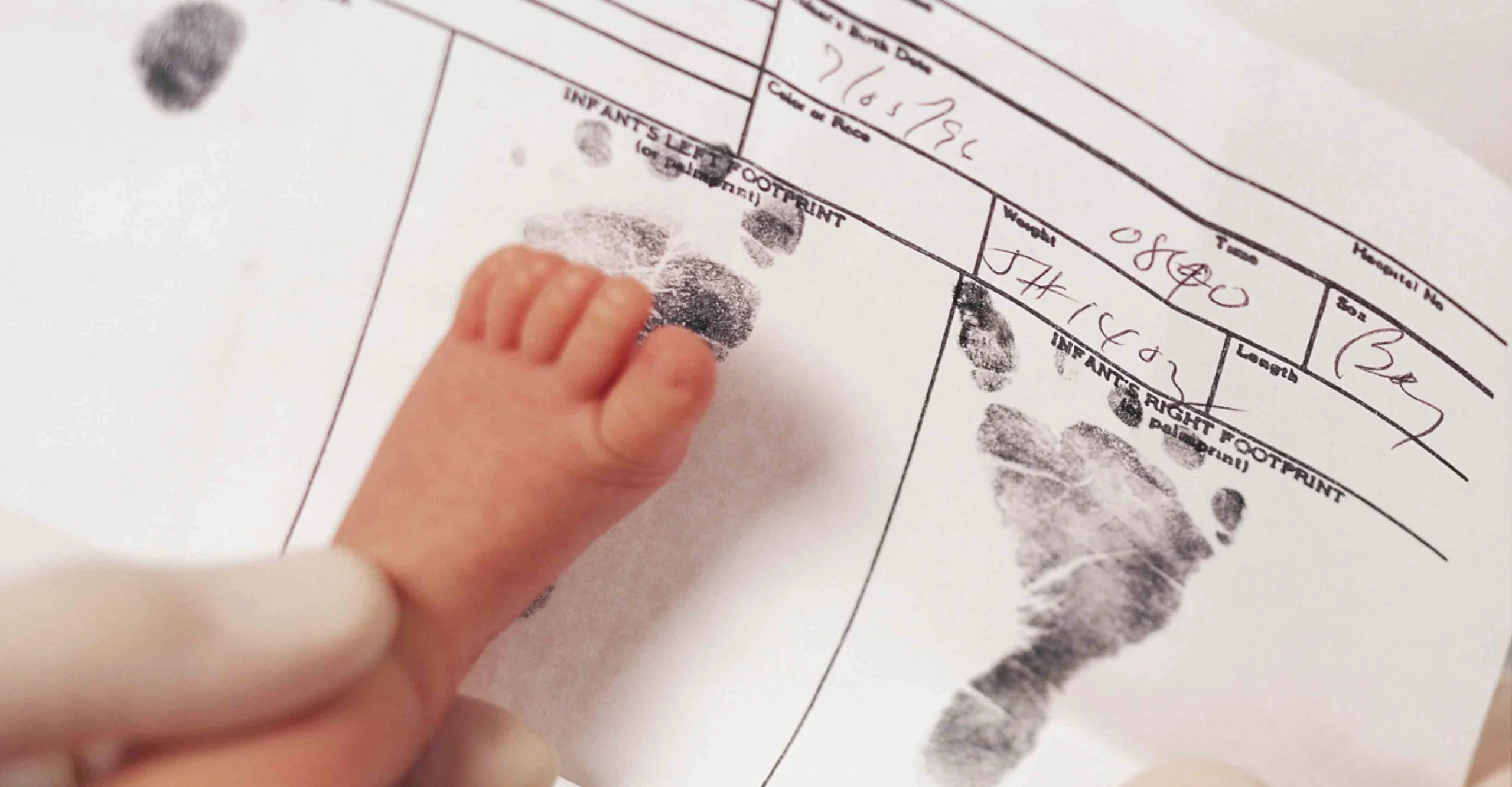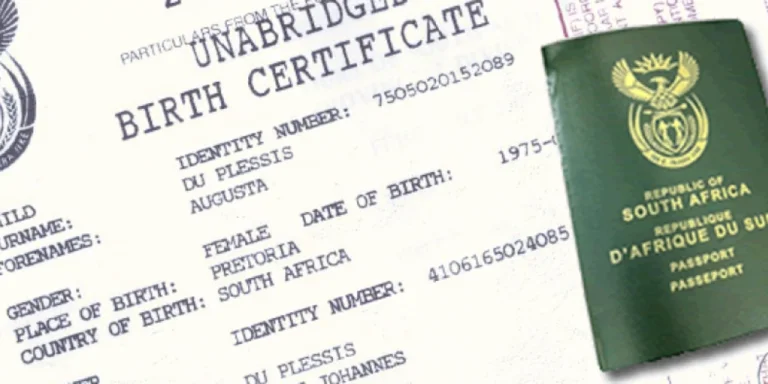The Essential Guide to Registering Your Baby’s Birth in South Africa


Last Updated: 14 March 2025

Bringing a new baby into the world is an exciting and transformative experience. Among the first important tasks you’ll need to tackle is registering your baby’s birth. In South Africa, it’s a legal requirement to register your child within 30 days of birth, whether you’re a South African citizen or not. This is a crucial step to ensure your baby’s rights and future opportunities are protected from day one!
To make this process more convenient, the Department of Home Affairs has set up offices in some hospitals and health facilities across the country. This means you might be able to register your baby’s birth right at the hospital, before you even head home. Be sure to ask your clinic or hospital if they have a Home Affairs office on-site for an even smoother experience.
Once your baby’s birth is registered, you’ll receive an unabridged birth certificate free of charge. This document is essential for many future needs, including traveling out of the country. If you need additional copies, you can apply for more, although a fee will apply.
Remember, every child born in South Africa is entitled to a birth certificate, regardless of nationality. Unfortunately, some parents do encounter challenges in obtaining one, but it’s important to persist and seek help if needed to secure this critical document.
Why is Birth Registration Important?
A birth certificate is a vital document that proves your baby’s identity, name, and age. It also grants your child access to essential services throughout life, such as:
- Enrolling in school (starting with Grade R)
- Accessing healthcare services
- Receiving government grants
- Traveling abroad

The Birth Registration Process
In many hospitals and clinics, you’ll find a Department of Home Affairs (DHA) desk where you can easily register your baby’s birth before leaving. If you’re not sure whether your hospital has a DHA desk, it’s a good idea to ask ahead of time. Knowing if they support birth registration can save you a trip to a DHA office later on!
If your hospital doesn’t offer this service, don’t worry. You can still register your baby at your nearest DHA office within 30 days of birth. Simply bring yourself and your baby to the office and let them know you’re there to register the birth. You’ll need to complete a form called Form BI-24, and the process is free of charge. Once everything is submitted, the DHA will issue an unabridged birth certificate, which includes the details of both parents, if possible.
Whether you’re registering at the hospital or a DHA office, make sure you have all the necessary documents ready. It’s a good idea to keep everything organised in a file or folder to make the process as smooth as possible. And remember, filling out the forms ahead of time can save you stress after the baby arrives—don’t make it harder than it needs to be!
Married Couples
- Completed Form BI-24
- Mom's South African ID document
- Dad's South African ID document
- Stamped proof of birth or clinic card
- Marriage Certificate
Unmarried Partners
- Completed Form BI-24
- Mom's South African ID document
- A stamped proof of birth or clinic card
If you are not married, and your partner or the father of your baby wants to have their name on the birth certificate, they must come to the clinic or hospital in person and bring their ID documents as well.
Late Registration
We get it—newborn life is hard, and sometimes meeting that 30-day deadline to register your baby’s birth isn’t so easy. But don’t worry, if you miss it, here’s what you need to do.
If you haven’t registered your baby’s birth within the first 30 days, it’s classified as a “Late Registration of Birth.” This process involves a few more steps and paperwork, making it a bit more complex and time-consuming.
To start the late registration process, head to the DHA office closest to where your baby was born and let them know you need to apply for a Late Registration of Birth. You’ll be asked to complete a special form (DHA 24/LRB) along with a form that verifies your baby’s birth. You’ll also need to provide an affidavit explaining the reason for the delay.
After submitting the forms, DHA officials will visit the hospital where your baby was born to confirm the birth. You may also be required to attend an interview with the officials to finalise the registration. Just keep in mind, this process can take up to a year, so it’s best to get started as soon as possible.
What if I am a Foreign National?
If you or your partner are foreign nationals, the birth registration process may be a bit more complicated and will depend on your documentation status. Every child born in South Africa, regardless of nationality, has the right to a birth certificate. However, in practice, many parents encounter difficulties when trying to register their child’s birth.
To get help and advice on navigating this process, you can have a look at this guide to gettng a birth certificate for baby or reach out to the Scalabrini Centre of Cape Town, an organisation dedicated to supporting migrants. They focus on welcoming, protecting, and integrating people on the move into local communities. Their Advocacy Team can provide detailed information via Advocacy Whatsapp Line (078 260 3536) on how to register your baby’s birth.
Bringing your little one into the world is an exciting time, and registering their birth is a critical step to ensure they’re recognized and protected from the start. While the process might seem daunting at first, knowing what to expect and preparing ahead of time can make things much easier. Whether you’re taking advantage of a Department of Home Affairs desk in your hospital or heading to the nearest office, the key is to gather your documents early and stay organised.
Remember, your child’s birth certificate is more than just a piece of paper—it’s their access to essential services like healthcare, education, and even international travel. If you miss the 30-day window for registration, don’t panic—there are still steps you can take, though the process might take a bit longer. And if you or your partner are foreign nationals, help is available to guide you through the registration process.
No matter your situation, the most important thing is to ensure your baby’s future is protected with a valid birth certificate. So take a deep breath, get those forms ready, and embrace this beautiful new chapter with peace of mind.
Key Takeaways
- In South Africa, it’s mandatory to register your baby’s birth within 30 days, whether you’re a citizen or not. This ensures your baby’s rights and future opportunities are secured from day one.
- Many hospitals and clinics have Department of Home Affairs (DHA) desks, allowing you to register your baby before leaving the hospital.
- After registering, you’ll receive an unabridged birth certificate free of charge. This document is vital for many services, including healthcare, schooling, and travel.
- If you miss the 30-day deadline, the registration process becomes more complex, requiring additional documentation and time.
- If you or your partner are foreign nationals, navigating the birth registration process may be more complicated, but help is available!
Our Guidance Pledge
We’re dedicated to providing you with practical, evidence-based information to help you make the best choices for your growing family. All content is medically reviewed by our in-house doctor and/or experts such as OB-GYNs, doulas, and midwives, and is based on the latest international guidelines, peer-reviewed studies, and reputable sources from academic institutions and medical journals. Learn More
Sources
- Department of Home Affairs. (n.d.). List of National Population Register (NPR) hospitals. https://www.dha.gov.za/files/Brochures/NPRhospitals.pdf
-
Western Cape Government. (n.d.). Registering the birth of your child. https://www.westerncape.gov.za/service/registering-birth-your-child































